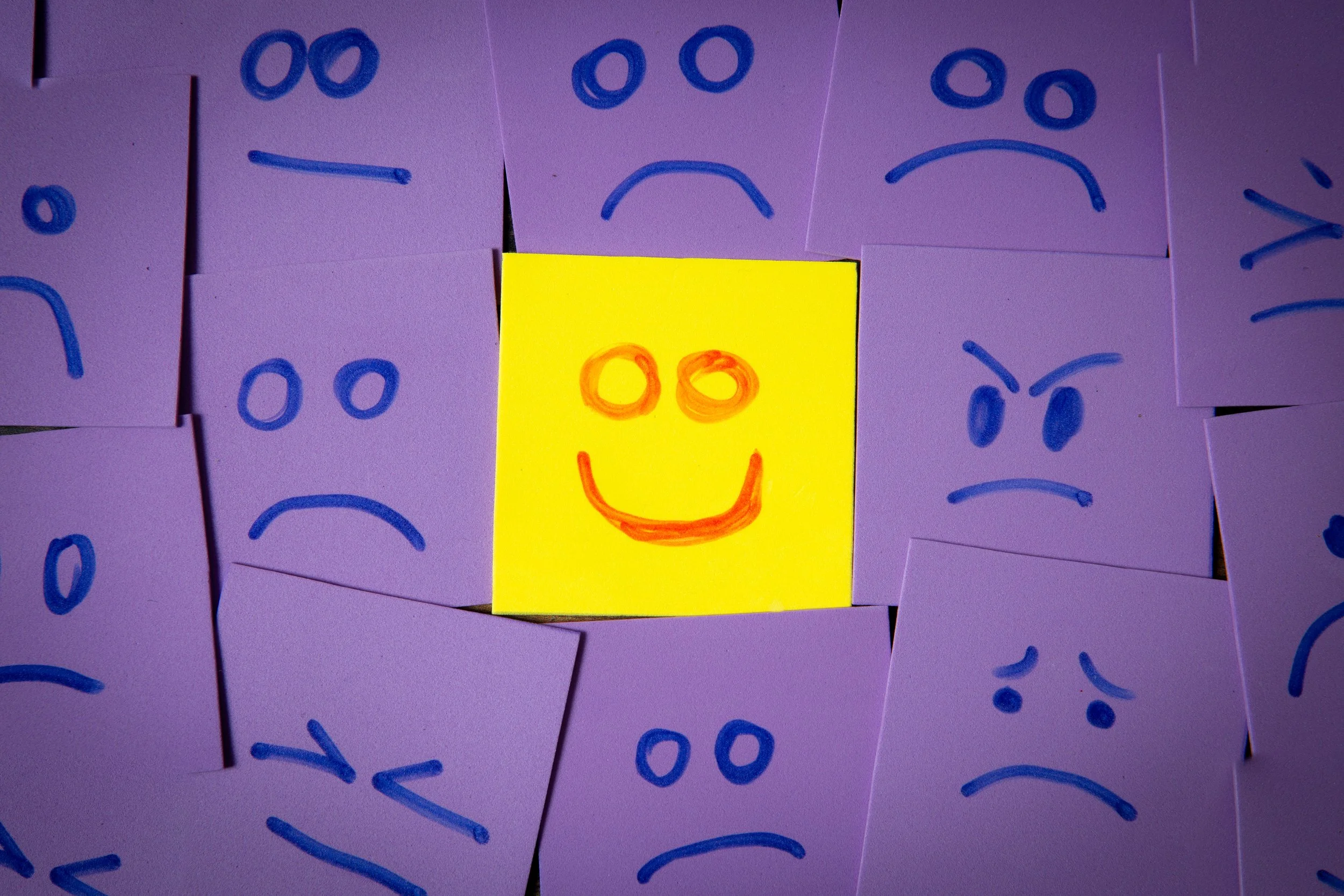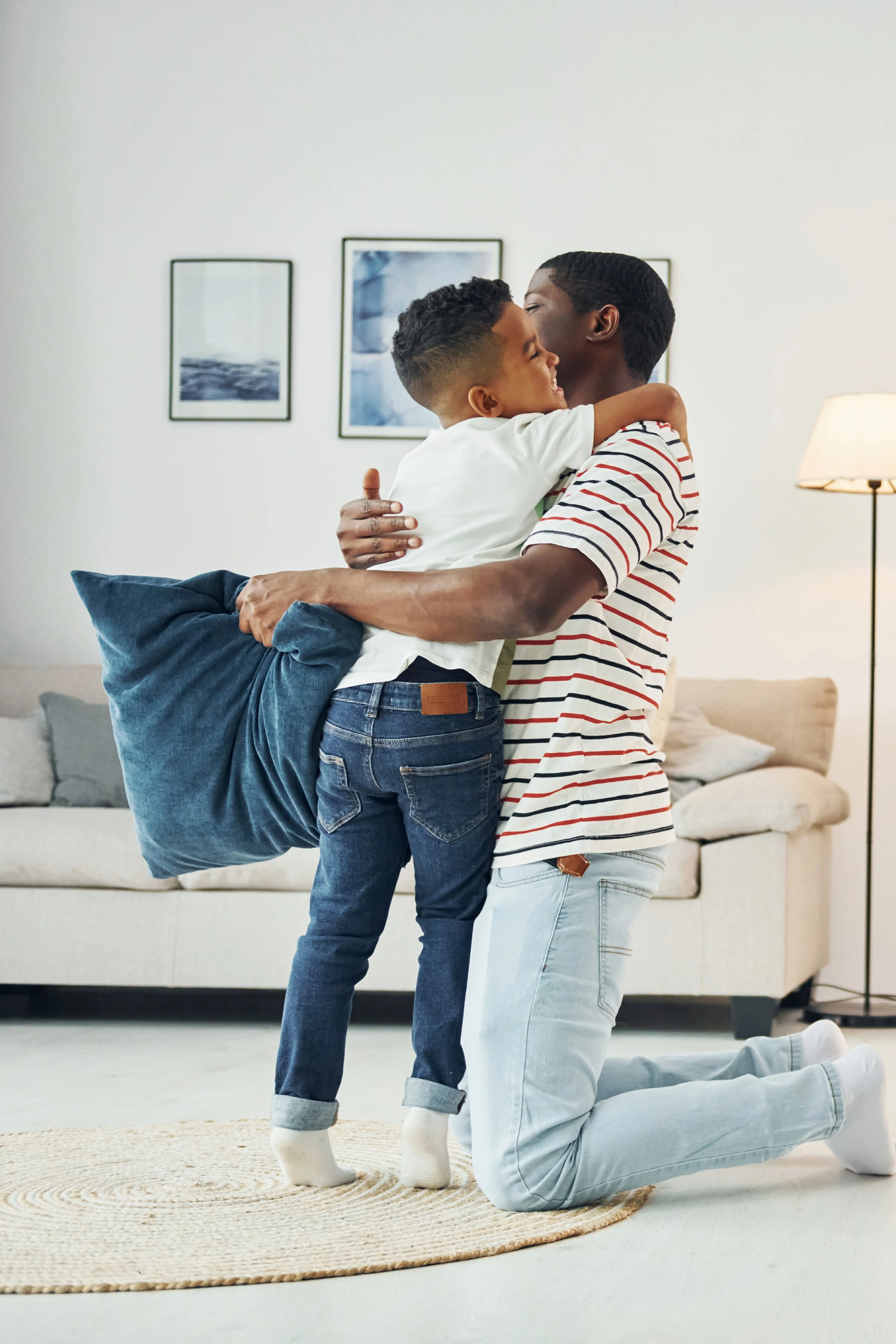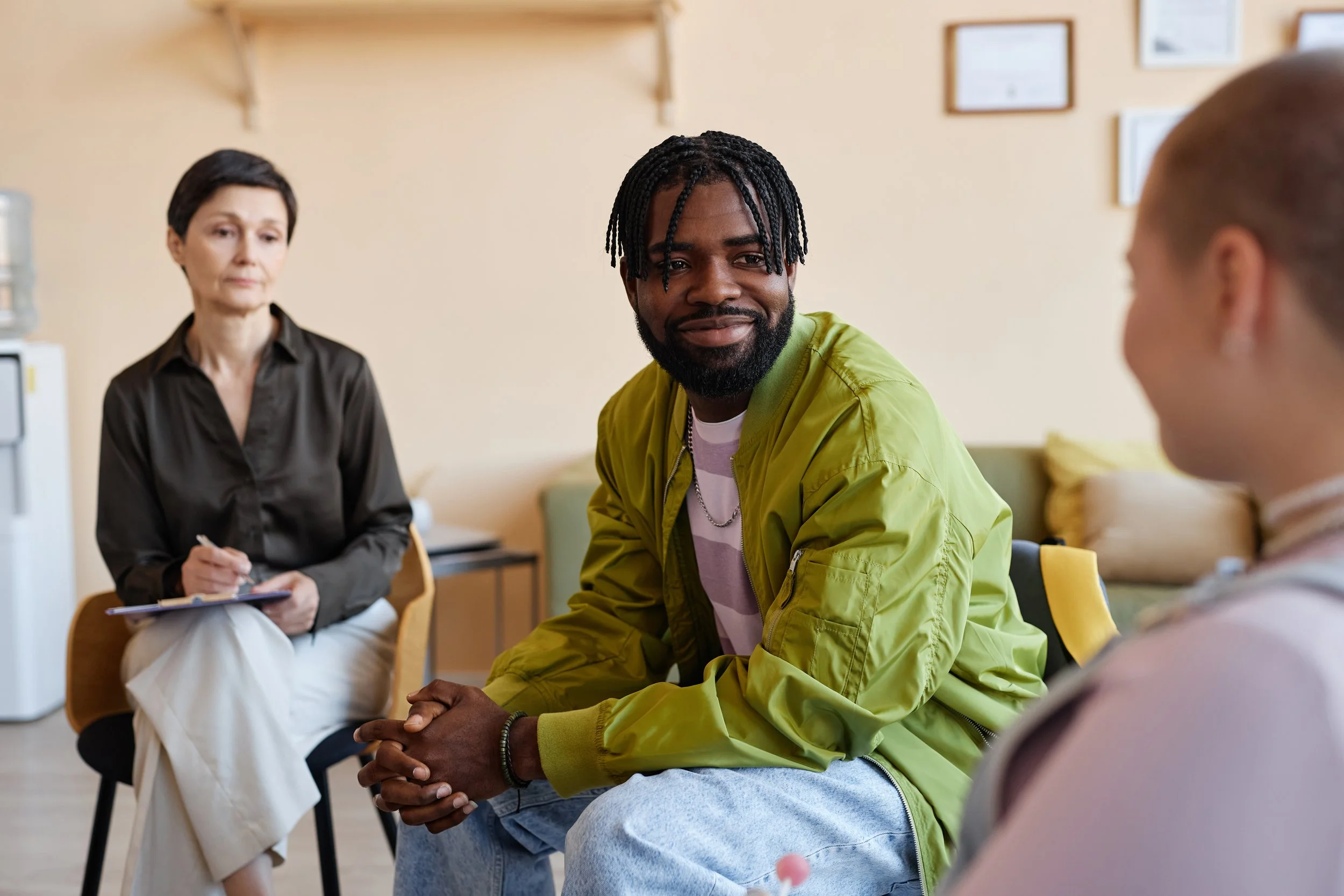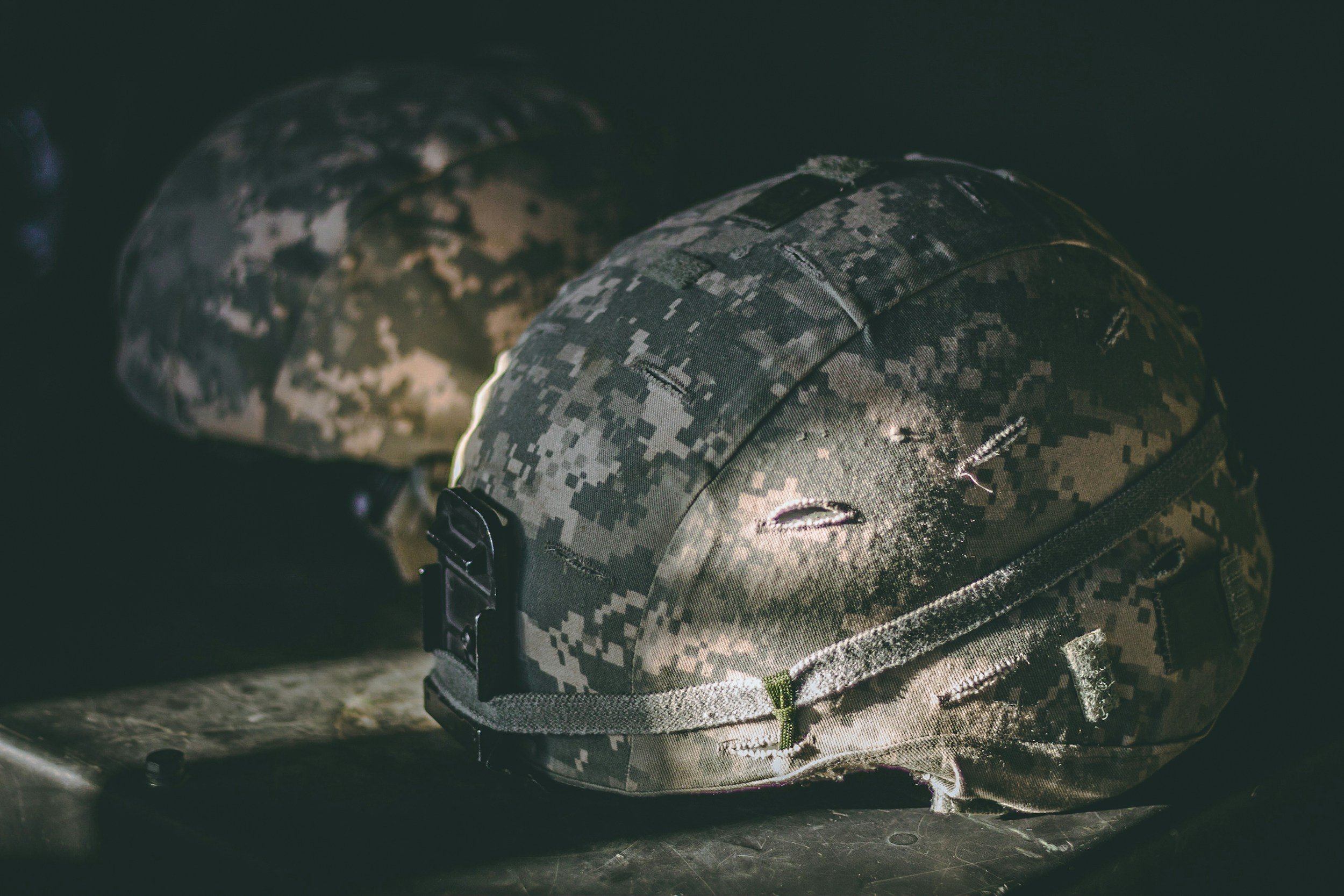
Programs
& Initiatives
Our instructors bring a wealth of experience and a deep commitment to nurturing your skills. Guided by their passion for making a positive impact, you will be empowered to make a real difference in your community.
Emotional Well-Being
Having a sense of purpose and balance in life while being able to carry out daily living activities is essential when handling life stresses such as domestic abuse and violence. Daniel’s Den will support men and their families as they navigate through the stresses of displacement as they adapt to a life free of abuse and violence. Daniel’s Den will play a significant role in helping male victims regain stability after experiencing domestic abuse and violence by providing a judge free recovery space.
Information and educational resources to aid in this transition from abuse to safety will be accessible for the men and their families. In addition there will be a licensed provider contact information available in the resource room.
Spiritual Health
Beliefs in life are important to the welling-being of people that have experienced trauma. To be able to draw upon strengths and gifts in pursuit of obtaining objectives in their life can be challenging. Discussions on topics such as dreams, pain, goals, fears, grief, and beliefs to seek healing can play a vital role in life successes. What does family look like? What is the importance of social relationships? The sense of belonging and worthiness can develop through spiritual conversations and togetherness. Inspiring and supporting others through fellowship and activities to help sustain equitable communities.
Youth & Young Adult Initiatives
Youth who are victims of emotional, physical, and sexual abuse are at higher risk for health problems as adults. Anxiety and depression may be included in these conditions.
-
Youth violence is defined as the intentional use of physical force or power to threaten or harm others. It may include fighting, bullying, and threats. *The National Center on Domestic and Sexual Violence (NCDSV) says, “Over half of men (53.6%) who have been physically or sexually abused or stalked by a dating partner, first experienced abuse between the ages of 11 through 24.
It is said that violent behavior typically begins between the ages of 12 and 18. One in 10 high school students has purposefully been physically hurt by a girlfriend or boyfriend (hit, kicked, slapped).
Ages between 16 and 24 experience the highest rate of intimate partners violence at also triple rate. Some college students have exclaimed it is difficult to identify if abuse is happening among their peers.
According to *Hope Alliance, 33% of teens are in an abusive relationship, 81 % of parents believe teen dating violence is not an issue or admit they don’t know if it’s an issue and 33% of teens who were in a violent relationship never told anyone about the abuse.
***The Centers for Disease Control Division of Violence Protection (CDC): CDC data states in 2020, youth violence which included nonfatal physical assault related injuries and homicides resulted in $122 billion annually in costs for medical care, lost work, and quality of life.
Prevention of youth and young adult violence can be approached through community involvement with parents, peers and local leadership addressing important issues such as environmental status, social, and mental health.
*NCDSV **Hope Alliance ***CDC
Mental Health
Mental Health involves a person’s emotionally, social, and psychological well-being. It affects how a person thinks, feels, and behaves in various situations. Since caring for your mental health can involve a combination of therapy, counseling, lifestyle changes, and support systems Daniel’s Den will seek to have those interventions/resources readily available. Some outcomes of good mental health are reduced stress, improved moods, and positive behaviors.
Do not be afraid of talking about mental health illness. Speaking openly about your experience helps educate others.
You are not alone.
-
Cognitive-Behavioral
Humanistic
Journaling
-
Self-care practices
Healthy diet
Adequate sleep
-
Licensed Professionals
Peer Support Groups
Family Support Groups
Safe Place Program
A key component of leaving a domestic abusive relationship is having a safe place to reside. Daniel’s Den will help provide a smooth transition to a safe place or residential environment. With the help of law enforcement, a proper assessment will help determine the immediate need or severity of placement options. The Safe Place Program will consist of two tiers, the Immediate Tier and the Move to Live Tier.
During the time of placement the male victim will have access to resources and counseling to help with understanding the support provided to recovery. We will develop a system of aligned housing organizations with the mission to secure safety spaces for male victims to help remove and protect them from harms-way. This will be made possible through strategic planning with other organizations and financial donations from donors.
Military Family Advocacy Programs
Response for the prevention of and response to domestic violence/intimate partner violence in military families. It works with civilian social service agencies, law-enforcement, legal personnel and other agencies to provide a coordinated community response.
-
Military Protection Orders (MPO)- (Reach out to your Chain of Command)
A military protection order (MPO) is similar to a civilian protection order CPO, but is issued by a commander to an active-duty service member to protect a victim of domestic abuse and limit the behavior of the ledge abuser. A victim, victim advocate, installation law enforcement, agency, or FAP clinician may request a commander issue a MPO.
If the abuser is a member of the military an MPO may order the service member to surrender his or her government weapons, custody card or to stay away from the family home if he or she is living on the installation. Commanders may tailor their orders to meet the victim’s need specific needs.
Commanders can issue an MPO even if the victim already has a CPO. However, a new MPO should not contradict an existing CPO.
If you or someone you care about is seeking support for domestic abuse, confidentiality assistance is available. You can call Military OneSource at 800-342-9647 to be connected to your closest family advocacy program. More information is also available at:
installations.militaryonesource.mil/search?program-service=26/view-by=ALL
For support outside the military, you can connect with a victim advocate through the National Domestic Violence Hotline 24/7 by calling 800-799-7233.
Centers for Disease Control Division of Violence Protection (CDC):
cdc.gov/violence-prevention/index.html
Call 911 or military law-enforcement if you witness domestic abuse or you or someone you know is an immediate danger.
*Resource- QuickSeries Publishing
Psychological Health
Understanding the psychological expect of getting through the trauma of domestic abuse and violence requires the knowledge of medical and clinical professionals that knows how to discuss such concerns and patterns of the individual as well as behavioral health. Their expertise may help the male to learn how to share their feelings, experiences, and thoughts in both verbal and written communication.
With specific focus on psychological health men victims will gain knowledge on recognizing gender-based violence in reference to domestic abuse and violence. Learning how their well- being impacts their behaviors in relationships and how to set boundaries for developing healthy interactions and relationships. Helping them to prioritize their mental awareness and self-worth while applying it to meaningful realistic relationships.
Peer/Group Support
Our focus is to allow men to communicate and support one another from a male perspective using an open door no judgment environment and atmosphere. We want the men to celebrate their solutions to ending domestic abuse and violence amongst them with minimal redirection of the female perspective. This will be a space of authenticity for men to voice their opinions, concerns, and suggestions on relationships and traumatic narratives. (Open dialogue will be encouraged.)
-
Stop the Stigma
When it comes to domestic violence, men are also victims of abuse by their female partner. The stigma that men are always the aggressor in a heterosexual relationship is a myth that must be halted.
The data and statistics are alarming under measured due to the fact that men are not reporting the abuse or violence is occuring. Underreporting happens for different reasons by male victims. Male survivors may feel shamed, scared, do not trust law officials, or simply do not recognize the signs of abuse that they are experiencing. Abuse and violence takes place in many forms such as verbal, physical, psychological, financially, and even sexually.
No matter if a male defines himself as straight or gay, domestic abuse or violence is unacceptable and cause for a stand against it. It can happen to any man no matter of his educational, financial, social, or cultural backgrounds. Also we must include, you do not have to live with or be married to your partner to experience domestic abuse.
Here at Daniel’ Den we encourage victims to break the silence that is caging men in their abuse of domestic violence. We promote increase conversations about what abuse look and feel like through male guided peer groups. We rally for males to engage, learn, invest, and connect within our community of supporters to stop the violence.
Let us, together change the trajectory of the stigma against men by showing concern and speaking up. It may save someone’s life.
Ways to get involved:
Attend a peer group session
Host a peer night
Wear Purple, Black, & Gold
Spread Awareness
Volunteer
Donate
Any Questions?
Reach out to Daniel’s Den and we will answer any of your questions or concerns.









